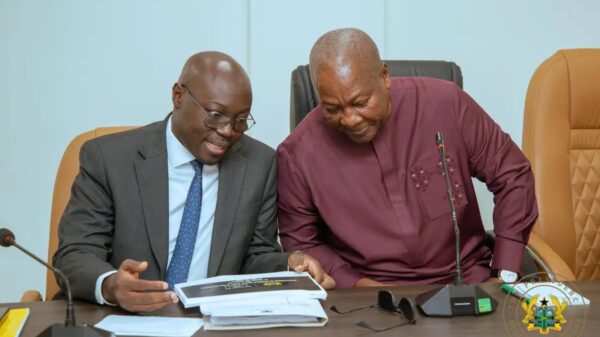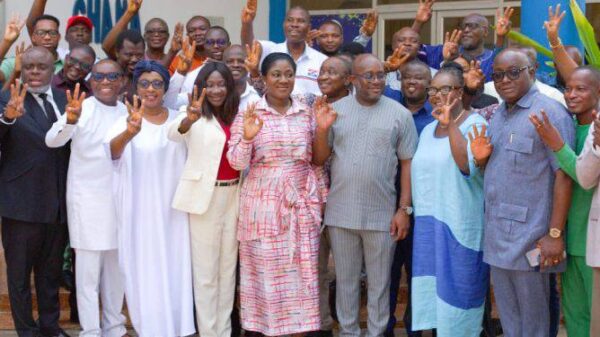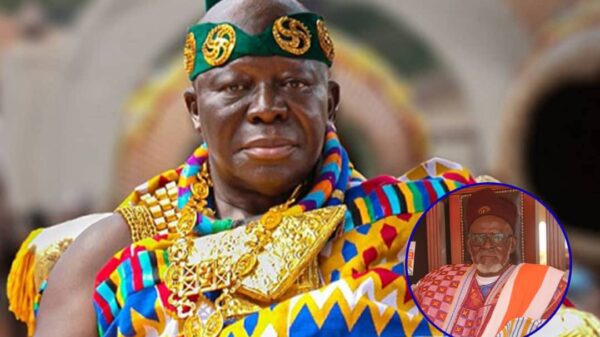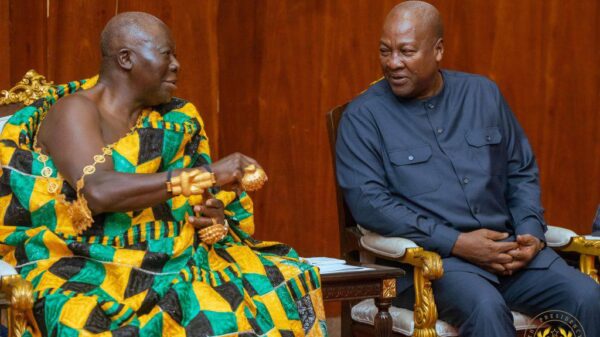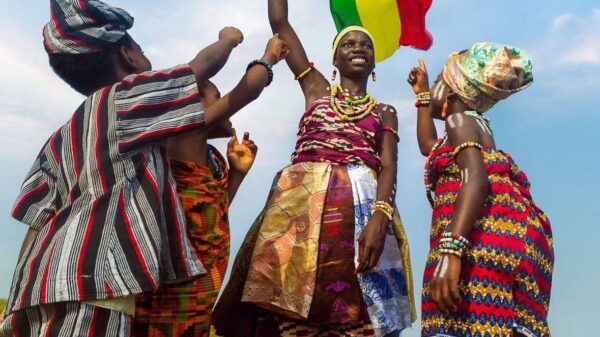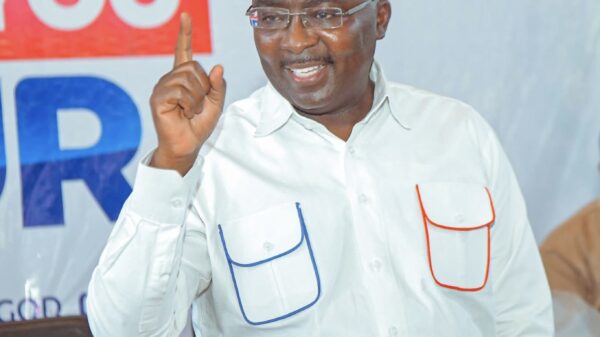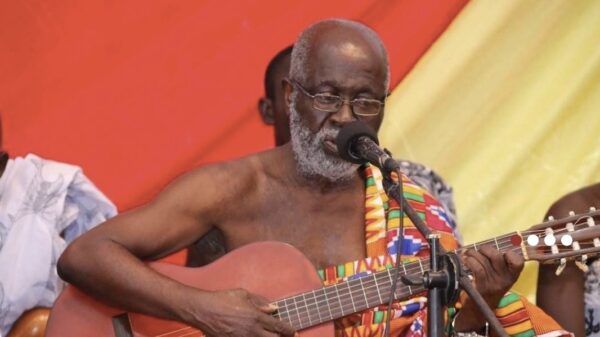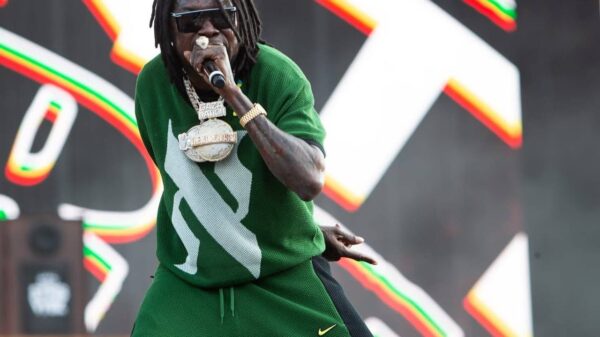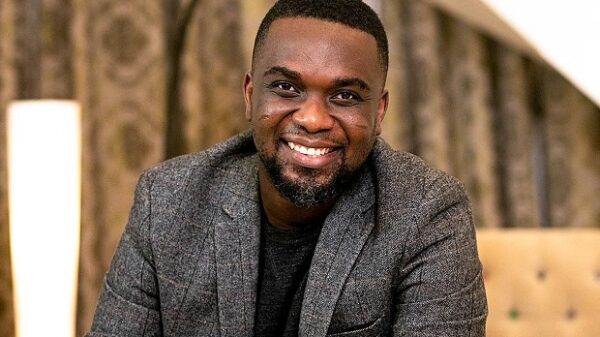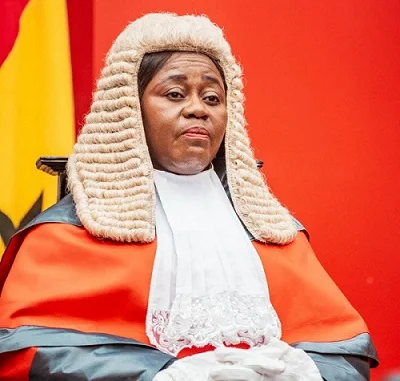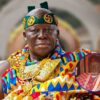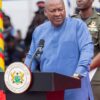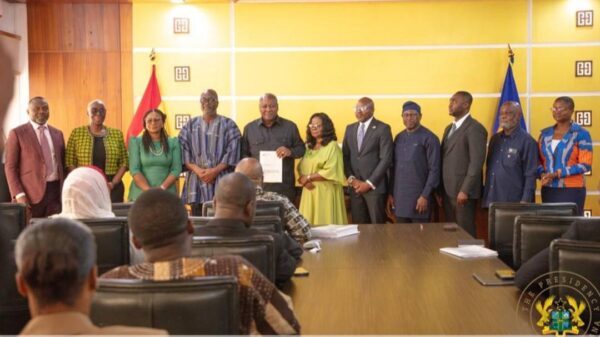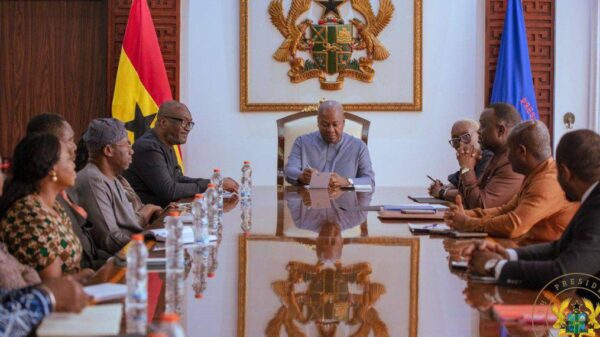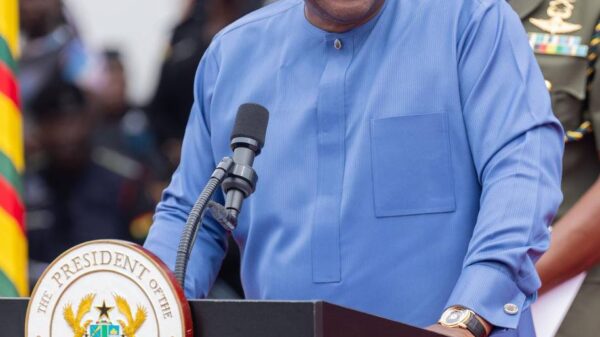President John Dramani Mahama has taken decisive constitutional action by suspending the Chief Justice, Her Ladyship Justice Gertrude Araba Esaaba Sackey Torkornoo, following the establishment of a prima facie case against her. This follows the receipt of three separate petitions questioning her conduct in office, prompting the invocation of Article 146 of the 1992 Constitution of Ghana.
In accordance with Article 146(6), and after consultations with the Council of State, the President determined that the petitions warranted further inquiry. The Constitution mandates that once a prima facie case is established, the President must, in consultation with the Council of State, constitute a committee to investigate the matter. Consequently, President Mahama has set up a five-member committee to carry out a formal investigation into the petitions referred to them.
The committee, which is composed of high-ranking individuals from the judiciary, public service, academia, and the armed forces, reflects the gravity and impartiality expected in such a process. The President’s office named Justice Gabriel Scott Pwamang of the Supreme Court as the Chairman, alongside Justice Samuel Kwame Adibu-Asiedu, also of the Supreme Court, former Auditor-General Daniel Yaw Domelevo, Major Flora Bazaana Daluqo of the Ghana Armed Forces, and Professor James Sefah Dzisah, an Associate Professor at the University of Ghana.
The legal authority for this move rests not only on Article 146(6) but also on Article 146(10) of the Constitution, which provides for the suspension of a Chief Justice once a prima facie case has been established and the committee has been set up. Based on the advice of the Council of State, the President issued a formal warrant suspending the Chief Justice with immediate effect, pending the outcome of the committee’s proceedings.
This action underscores the enduring relevance and power of Ghana’s constitutional provisions in safeguarding transparency, judicial accountability, and the rule of law. Article 146 was designed to ensure that even the highest judicial officers are not above scrutiny, while still protecting their right to a fair and impartial hearing. It reflects the spirit of democratic accountability, reinforcing public trust in Ghana’s institutions.
The unfolding process is expected to be thorough, fair, and constitutionally grounded, providing clarity on the allegations and allowing justice to be served appropriately. Ghanaians are encouraged to remain calm and patient as the constitutional mechanism is allowed to function, demonstrating once again that in Ghana, the Constitution remains the highest authority in the land




